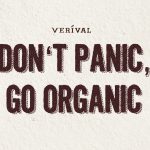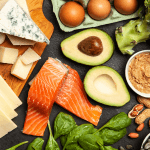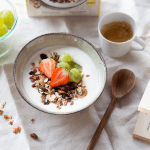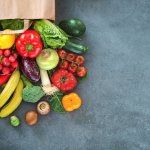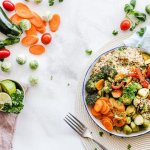What you always wanted to know about proteins
September 26, 2019- Breakfast
- Fitness
- Gesund leben
- Nutrition
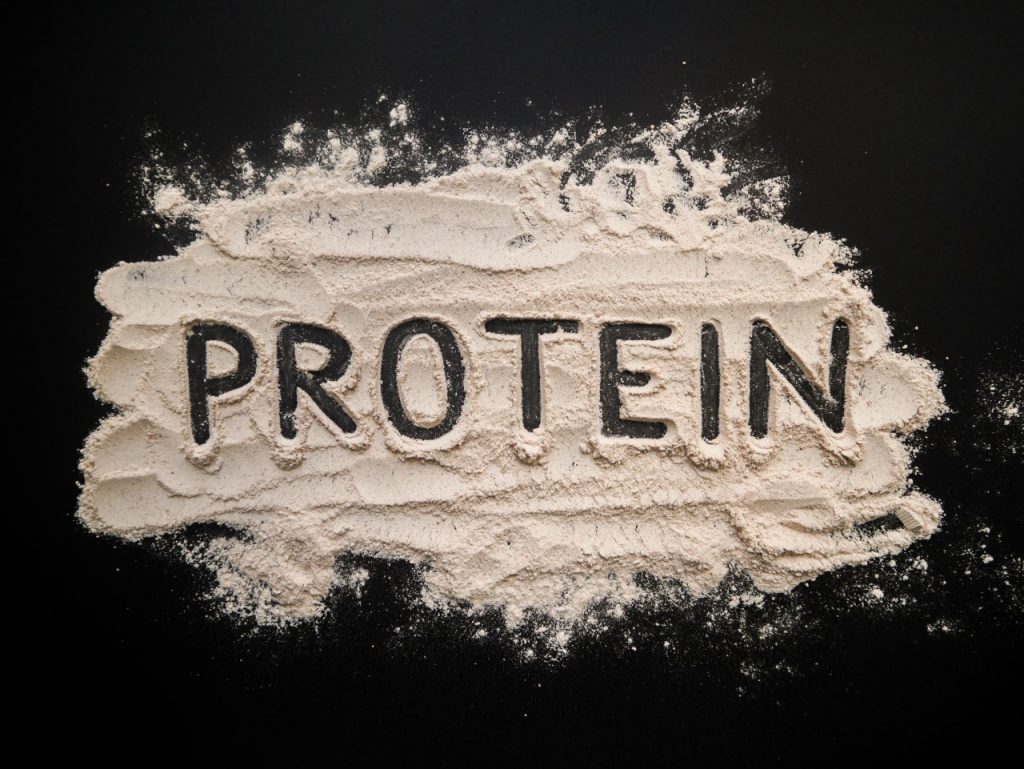
The protein hype does not seem to come to an end and is still one of the top trends in every important food trend analysis. For us as breakfast makers, this is definitely a reason to take a closer look at this topic. The result? We followed the trend and launched our own sports range “Organic Athletics” in spring 2019.
Would you like to know more about proteins and their role in our diet? In order to give you a comprehensive insight into the world of proteins, we have again contacted Patricia Görgl, a qualified nutritional trainer and TCM nutritionist. We asked her to explain what proteins actually are, what we need them for and from which foods they should ideally be obtained from a nutritional point of view.
Übersicht
What exactly are proteins?
Proteins are amino acids which are vital building blocks for the body. Proteins play a very important role. For example, they are responsible for the cell structure of our hair, skin and nails.
In addition, proteins are needed for the following processes in the body:
- to maintain our immune system
- to form enzymes and hormones
- to transport oxygen and fat
- to build antibodies and coagulation factors
Which foods contain protein?
A basic distinction has to be made between plant-based and animal proteins:
Plant-based proteins
- Legumes such as beans, chickpeas and lentils
- Grains or pseudo-grains such as quinoa, oats or millet
- Nuts and seeds
- Lupine, soy, seitan
- Fruit and vegetables
Animal proteins
- Meat
- Eggs
- Dairy products
How well these proteins can be absorbed is measured by what is known as bioavailability. The amino acid composition of the food is used to determine how well the protein can be utilized by our body. The higher the value, the better the absorption or utilisation.
A chicken egg with the number 100 has the highest bioavailability. However, this is a reference value which was determined arbitrarily and therefore does not automatically mean that the protein of the chicken egg can be converted 100% to a body protein. [1]
Proteins and their bioavailability (mixed diet)
100 – Whole eggs
98 – Potatoes
92 – Tuna
88 – Milk
86 – Soy protein
85 – Pork meat
85 – Cheese (Edam)
80 – Poultry
72 – Corn
67 – Rye
66 – Rice
64 – Brown rice
64 – Oat flakes
63 – White beans
50 – Hazelnuts
40-50 – Lenses
47 – Wheat flour
36 – Carrots
3 – Green peas
On average, a healthy person needs about 1g of protein per kg of body weight. Hobby sportspeople as well as strength athletes and competitive athletes need a little more, but this has to be determined individually.
What kind of proteins are healthy?
It should also be mentioned that according to the DGE (German Nutrition Society) and ÖGE (Austrian Nutrition Society) animal products lead the list in terms of their bioavailability. However, Patricia would recommend covering your protein need mostly through vegetable proteins – for the following reasons:
Vegetable proteins also provide us with micronutrients (vitamins, trace elements). Especially in the case of animal products, the bioavailability is strongly dependent on the quality of the products. Residues of antibiotics or other drugs can often be found in animal products from mass animal husbandry. In addition, the conditions in which animals from factory farming are kept are disastrous. All these circumstances are naturally reflected in the quality of the products.
Patricia therefore recommends buying products from organic farms and in the best case also from regional farms in order to decrease the overall transport distance.
A balanced diet
If you follow a balanced diet and for example obtain two thirds of your protein intake from plant foods, you are already on the right track. If you still want to have proteins from animal sources, the vegetarian option (dairy products or eggs) would be the preferable option.
A long-term study conducted by the Harvard Medical School came to the following conclusion:
(…) If the proportion of animal protein is increased by 10% in relation to the total calorie intake, the risk of death generally increases by 2% and the risk of dying from a cardiovascular disease can increase to as much as 8%.
In contrast, the risk of death decreases by 10% if 3% more vegetable proteins are included in the diet. The numbers are even clearer when some of the animal proteins are replaced by plant proteins. In particular, it is worth changing from processed beef and pork (e.g. sausages) and from eggs to vegetable proteins (…). [2]
Conclusion
Animal proteins are generally overrepresented in the omnivore diet. A reduction therefore certainly makes sense and also has long-term positive effects on the fat metabolism, the liver health and our general health.
Patricia has two final nutrition tips for you:
- Avoid “extremes” (e.g. low carb, high carb, … etc.) in your diet as much as possible.
- Make sure that you consume enough of all macronutrients and micronutrients according to your needs. An extended blood test can provide you with information on what you need and whether any deficiencies exist.
About Patricia

Patricia has been interested in nutritional science and a healthy lifestyle all her life. Mindfulness has given her a new perspective on her tasks, which she incorporates into her work and books.
She sees herself as an impulse giver to support people on their way (back) to a positive body feeling.
[1] Vegane Ernährung: Optimale Proteinversorgung durch Kombination (https://www.deutschlandistvegan.de/vegane-ernaehrung-proteine/)
[2] Studie: Pflanzliche Eiweiße gesünder als tierische (https://www.pharmazeutische-zeitung.de/2016-07/studie-pflanzliche-eiweisse-gesuender-als-tierische/)


